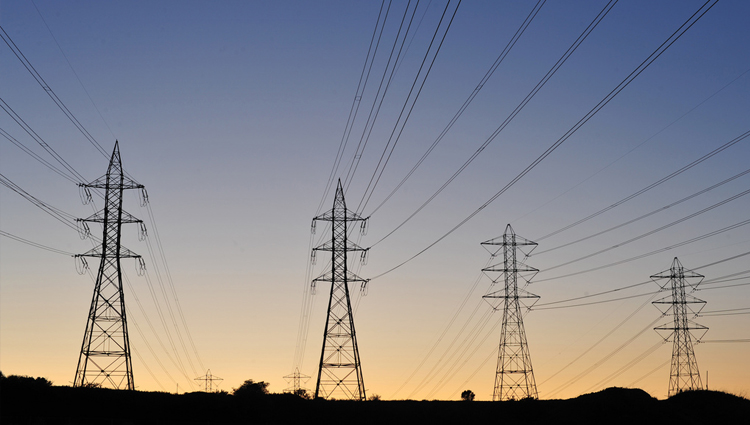Power Grid Protection Plans Include Solar Storms
Legislation plans prepare for electrical emergencies that occur from events outside our control.
Image

Media credits
Updated 8/3/10 to insert recent solar flare events
WASHINGTON (ISNS) -- Protection plans for the nation's complex electrical grid passed by lawmakers in July include emergency events that are outside of control -- like the solar flare radiation expected to reach Earth tonight.
Electricity is all around us. It lifts elevators, pumps gas, lights rooms, cooks food, and even powers a growing fleet of cars. We generally take the vast electric grid for granted until it turns off. Only then do we realize how important it is. Blackouts owing to technical foul-ups are bad enough, but new hazards, some malicious and some from nature, threaten to create electrical disturbances on an unprecedented scale.
Legislation that Congress passed in July hopes to strengthen the grid’s robustness against attacks of many kinds. The immediate aim of the Grid Reliability and Infrastructure Defense Act is to direct the Federal Energy Regulatory Commission, the main federal agency responsible for electricity matters, to establish security rules for utilities and other energy companies.
The GRID Act amends the old power law by recognizing several threats to the grid. One of these is an attack that tampers with grid computer control systems. Some utilities report fending off thousands of such cyber-attacks per day. Another is infrequent but potent geomagnetic storms, which can happen when eruptions of material from the sun send cascades of particles into Earth's atmosphere. These particles can cause beautiful auroral displays ("northern lights"), but can burn out the wiring in orbiting satellites and induce short-lived but large voltage surges in grid equipment on the ground. Past such storms have burned out expensive equipment and left millions in the dark. A carefully detonated nuclear bomb could emit radiation pulses that could do some of the same damage.
"The electric grid's vulnerability to cyber and other attacks is one of the single greatest threats to our national security," said Rep. Edward Markey, D-Mass., chairman of the Energy and Environment subcommittee and one of the sponsors of the bill. "Every one of our nation’s critical systems -- defense, water, healthcare, telecommunications, transportation, law enforcement, and financial services -- depends on the grid. This bipartisan legislation is critical to protecting the United States against this emerging threat."
One of the chief fears addressed by the GRID Act is that a major power outage might be long-lasting, especially if critical components were affected. Even "a small disruption in the power supply can wreak havoc on our economy, while an extended blackout of months would be catastrophic," said Rep. Fred Upton, R- Mich., another sponsor of the bill.
The GRID Act stipulates that energy companies take more precautions to guard against the highlighted threats. This would include having more spare parts on hand to deal with breakdowns. Transformers, the bulky devices that change electricity from one voltage to another, are particularly vulnerable to disturbances. Companies might pool their resources, and if necessary pass along the cost of extra equipment directly to consumers.
The act also creates a category of "protected" technology security information that is exempt from the Freedom of Information Act, the better to foil those who would plan terror attacks on the grid.
Article updated 8/3/10 to insert recent solar flare events
Original Publication Date: 6/14/10
Filed under
